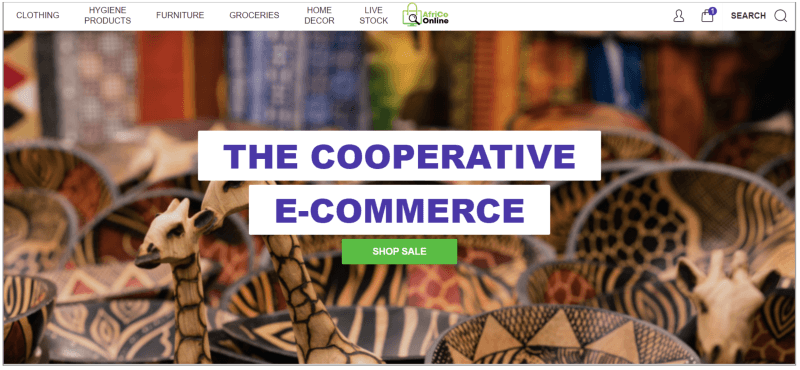Online cooperative marketplace launched by youth-led AfriCo Online

AfriCo Online, short for Africa Cooperatives Online, is a marketplace developed for cooperatives in South Africa. Through support from the YRP, AfriCo Online was able to develop and test this platform.
Led by a team of eight young people who also lead cooperative training and research programmes at the Africa Co-operatives Institute of South Africa, AfriCo Online aims to offer “a modern and competitive marketplace for manufacturing cooperatives” and provide consumers more choice when it comes to buying clothes, food and other retail items.
Products on the marketplace have a particular focus on South African cooperatives producing textiles, agricultural and artisanal products, all sectors which have been highly affected by multiple economic crises, exacerbated further by Covid-19.
As well as offering co-ops from South Africa and elsewhere on the continent an opportunity to sell to the South African consumer market, AfriCo Online has targeted programmes to catalogue and list products from women-led co-operatives in response to the issues of gender-based violence in South Africa.
The overall aim of the marketplace is to “lift the co-op identity amongst South Africans and offer a socially responsible retail store alternative for consumers looking for better supply chains”.
As part of the YRP, AfriCo Online joined forces with three 3 fledgling Argentinian cooperatives, and a new cooperative from South Africa. To kick off the project, the team investigated which technologies were suitable and carried out training sessions and meetings to get to know each other and their needs. They then carried out the development, which included research, design, building and testing the site, deployment and quality assurance.
Currently, the site works by sourcing products from co-operatives and cataloguing them for listing on the online store. AfriCo Online vets and verifies all enterprises wishing to sell their products and services on the marketplace, to confirm their cooperative identity.
The next steps for AfricCo online would be to establish a multi-vendor function, whereby each cooperative or producer using the platform can manage their own products and sales via a personal account, similar to platforms such as Amazon and eBay. The team estimates this would take six months of development.
Another hope is that this marketplace can be re-used or adapted for other social economy organisations around the world, further increasing the work’s impact for the movement as a whole.
